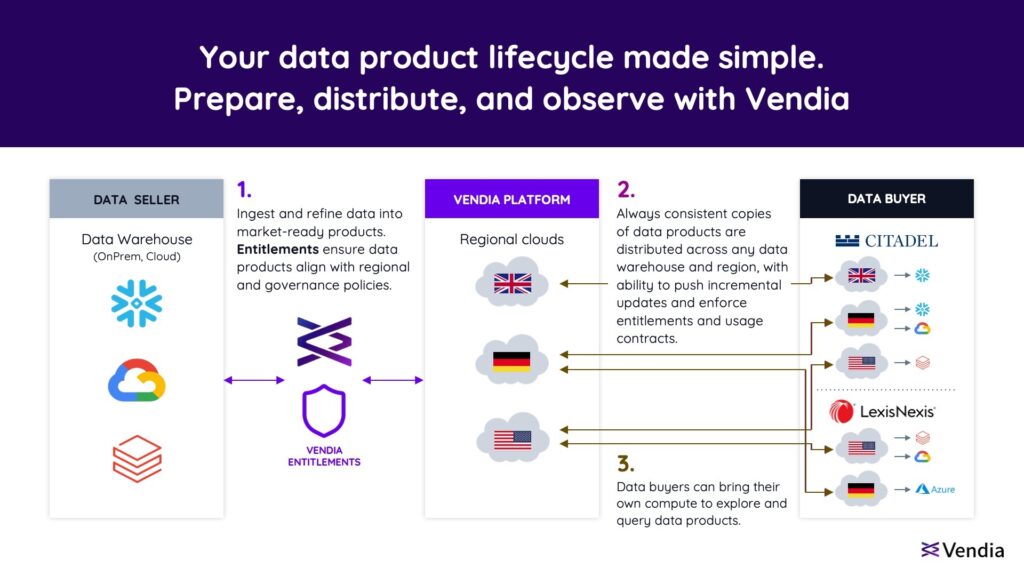The AI paradox: Empowerment in the age of IT bottlenecks
It’s undeniable that AI and genAI are here to stay, marking a vibrant resurgence of a concept that traces its roots back to 1956. With hardware finally catching up to AI's potential, we're witnessing a renewed wave of optimism, fueled by visions of democratized data access and the predicted rise of citizen developers (If you’re interested, check out part 1 and 2 of our citizen developer series). However, expectation often does not match with reality. The promise of empowerment is clashing head-on with the enduring challenges of IT bottlenecks and complex data governance. The road to data-driven decision making, while illuminated by AI's potential, remains fraught with obstacles that threaten to derail the dream of effortless, self-service analytics. This friction between aspiration and reality is acutely felt in the realm of data monetization. The past decade has witnessed a growing trend of curating and customizing datasets for external consumption, often facilitated by data marketplaces. Yet, instead of the anticipated boom, we're seeing a disheartening stagnation. This likely stems from the inability to truly empower those on the front lines – the VPs of Data Products, Business Development, and Customer Success – and has ultimately led to a crisis of confidence. Data monetization initiatives are stalling, not for lack of opportunity, but due to the lack of a streamlined, business-led approach. Organizations eager to package and distribute their data assets are finding themselves entangled in a web of challenges spanning the entire data product lifecycle. From the initial curation and customization of datasets to the intricate dance of entitlements, security protocols, and cross-platform distribution, the process is laborious, time-consuming, and unfortunately still demands the help of multiple data and infrastructure experts to shepherd from start to finish.
Untangling the data product lifecycle: A roadmap to revival
Ironically, the very tools meant to liberate business users – the AI copilots and chatbots – are highlighting the deep-seated issues that have long plagued data initiatives. The dream of empowering data product teams, business development, and customer success teams is stifled by the cumbersome processes that still require heavy IT involvement. Contrary to optimistic predictions, the democratization of data remains a distant goal. As a result, organizations are struggling to maintain momentum on business-led projects that depend on widespread data literacy and empowerment. In our previous blog post, we explored the critical first step in selling your data products: collecting and unifying customer data from diverse channels and marketplaces. Now, we'll dive deeper into the subsequent challenges of transforming that raw data into valuable, marketable products. This post will tackle the pain points of the data product lifecycle, from product creation and entitlement management to secure distribution. We'll uncover the root causes of the disillusionment surrounding data monetization and explore potential solutions that can reignite the promise of data-driven innovation.
Building data portfolios: A costly and cumbersome endeavor
The first hurdle in data monetization often seems deceptively simple: getting the necessary resources from IT. However, this seemingly straightforward request can trigger a lengthy approval process, hampered by (often legitimate) IT concerns over disruptions and resource limitations. Weeks or even months of waiting can severely hinder the data product team’s responsiveness to market changes. The missed opportunities during these delays can translate to lost revenue and a competitive disadvantage, not to mention discouraging those business owners who were initially passionate about the project. To solve this, data product and business teams need a self-service platform that empowers them to provision resources and explore data independently, accelerating setup and fostering agility.
Entitlements and data governance: A labyrinth of complexity
When packaging up data products, personalization is a top priority. Every customer arrives with unique needs, demanding data products tailored to their specific filters, segments, and geographies. This creates a significant challenge for data sellers, who often find themselves juggling thousands of custom product requests. The complexity deepens when organizations consider the regulatory landscape. Data providers must ensure compliance with stringent laws like GDPR, which dictate how personal data can be handled and shared. Upholding these regulations is crucial for maintaining customer trust and avoiding legal pitfalls. Additionally, data sellers must adhere to data contract terms and implement robust authentication mechanisms to safeguard sensitive information. This intricate process often demands collaboration across a wide range of specialists, including SQL experts, data stewards, and security architects. While their expertise is invaluable, it also introduces bottlenecks that slow down product creation and increase costs. So, what exactly is the ideal state? Data product teams need a platform that streamlines and automates data product customization. This would equip them with a user-friendly interface to effortlessly create and enforce data governance policies, apply filters, and ensure compliance. By automating tasks like PII data cleansing, the platform would free up valuable time and resources, allowing teams to focus on delivering maximum value to their customers, without creating burden on (or delays from) already overworked data operations teams.
Data exploration and distribution: The bottleneck that breaks the bank
The final stage of bringing data products to market, data exploration and distribution, often proves to be the most challenging. Despite the efforts of IT and data architecture teams to build robust infrastructures, the current model is fraught with issues that can quickly derail even the most promising initiatives. At the heart of the problem lies the incompatibility between customer preferences and existing data sharing solutions. Customers want to leverage their preferred tools, like Databricks, to analyze data from diverse sources, such as Snowflake. However, most data sharing solutions are designed for homogeneous environments, requiring data to reside within the same platform for seamless access. This forces data teams into a costly and complex juggling act, maintaining multiple data warehouses across various regions to accommodate diverse customer needs. This approach leads to skyrocketing infrastructure costs, both in terms of CAPEX for additional storage and OPEX for managing and synchronizing multiple data copies. The complexity escalates further when catering to global customers, as data distribution across multiple cloud regions becomes a logistical nightmare. Ensuring data consistency and synchronization across these dispersed environments demands significant resources and expertise. The dream solution for data teams is a platform that transcends these limitations. A platform with a unified global namespace, capable of seamless data sharing across ANY data warehouse, regardless of platform or location, would revolutionize data distribution. By eliminating the need for costly data replication and simplifying management, such a platform would pave the way for a frictionless customer experience and unlock the true potential of data monetization.
The Path forward
While the challenges facing data monetization endeavors may seem daunting, they can be overcome. As we write this blog, innovative solutions are emerging that promise to address these pain points, transforming the data commerce landscape and empowering businesses to unlock the full value of their data assets. A new wave of data automation platforms is breaking down the barriers that have long hindered data-driven initiatives, offering a streamlined and efficient approach to the entire journey, and making these capabilities accessible to business owners without requiring deep technical expertise. Vendia is at the forefront of this revolution, offering a comprehensive solution that simplifies and streamlines the entire data monetization journey. By placing the power in the hands of data product experts, Vendia enables them to create, govern, distribute, and observe data products with unprecedented ease and agility.
- Integration: Vendia Workflows seamlessly connect with existing data warehouses, extracting selected datasets and transforming them into a harmonized model for easy visualization and customization.
- Reconciliation: Vendia's intuitive UI and native SQL capabilities empower users to filter, curate, and package monolithic datasets into thousands of fine-grained, customer-specific products, scaling their efforts with ease. Additionally, Vendia's robust policy engine enables the effortless application of data governance policies, including geo-location restrictions and PII data cleansing, ensuring compliance and providing auditability for security teams.
- Activation: Vendia facilitates seamless data exploration by allowing customers to leverage their preferred compute engines to query and analyze data in open table formats. Data copies are automatically refreshed, ensuring that customers always have access to the latest insights. Vendia then simplifies data distribution by minimizing the number of copies across regions while guaranteeing synchronization between the source and all regional targets. This approach reduces complexity, minimizes costs, and ensures data consistency for customers worldwide.

By addressing the pain points of the data product lifecycle, Vendia empowers organizations to transform their data into a thriving revenue stream. With its intuitive interface, powerful automation capabilities, and commitment to security and compliance, Vendia is redefining the way businesses approach data monetization, making it more accessible, efficient, and profitable than ever before. But it doesn’t stop there. The fusion of data and generative AI is ushering in a new era of data monetization. AI copilots, fueled by clean, accessible data, are transforming this resource into a strategic asset that powers business growth. These intelligent assistants analyze, interpret, and provide real-time guidance on everything from pricing strategies to personalized product recommendations, driving decision-making with unprecedented speed and accuracy. However, this potential can only be realized if businesses prioritize seamless integration of their data with GenAI systems. As GenAI adoption accelerates, ensuring data cleanliness and accessibility becomes paramount. Businesses that invest in this synergy will not only unlock new revenue streams but also gain a significant competitive advantage in the evolving landscape of data-driven business. If you're a data provider seeking to simplify and accelerate your data monetization journey, we invite you to reach out and explore how Vendia can transform your data into a thriving revenue stream. Stay tuned for more insights and best practices on maximizing the value of your data products.


